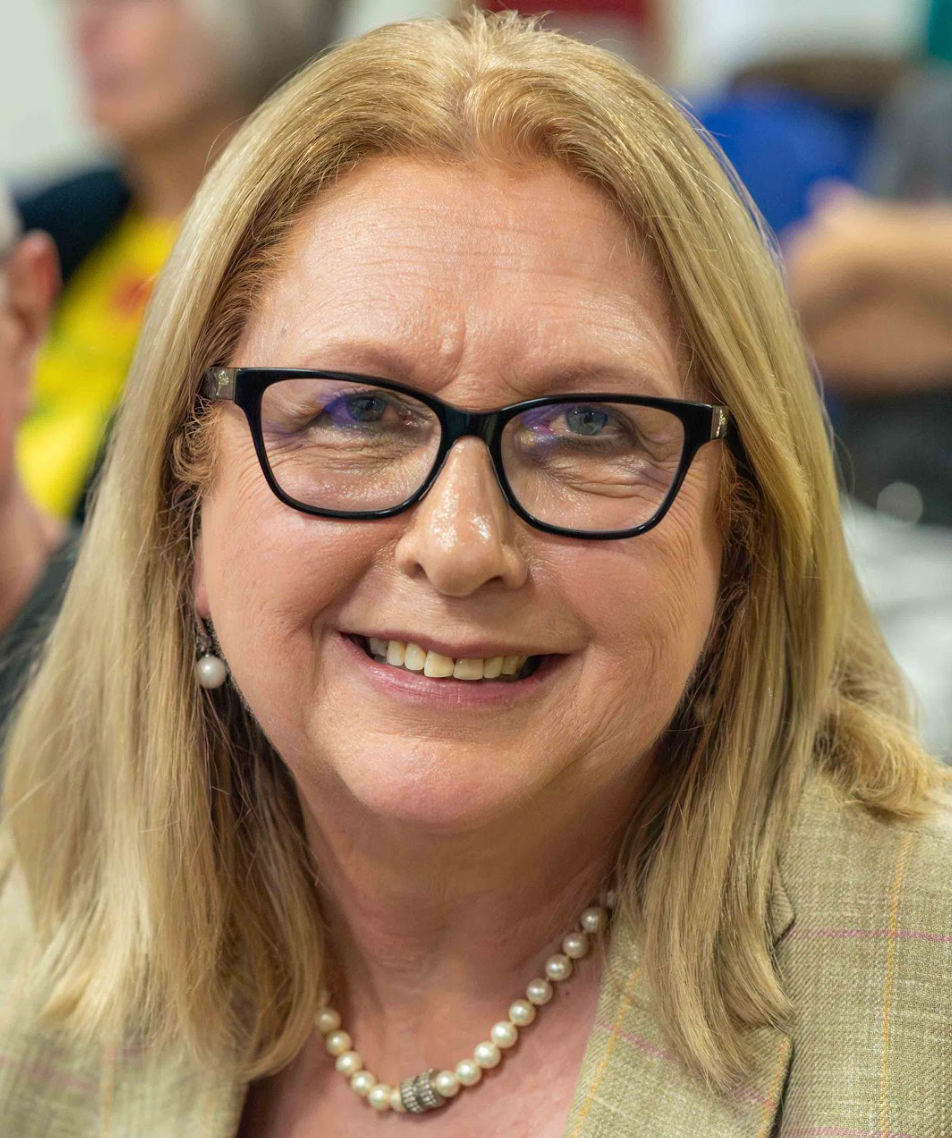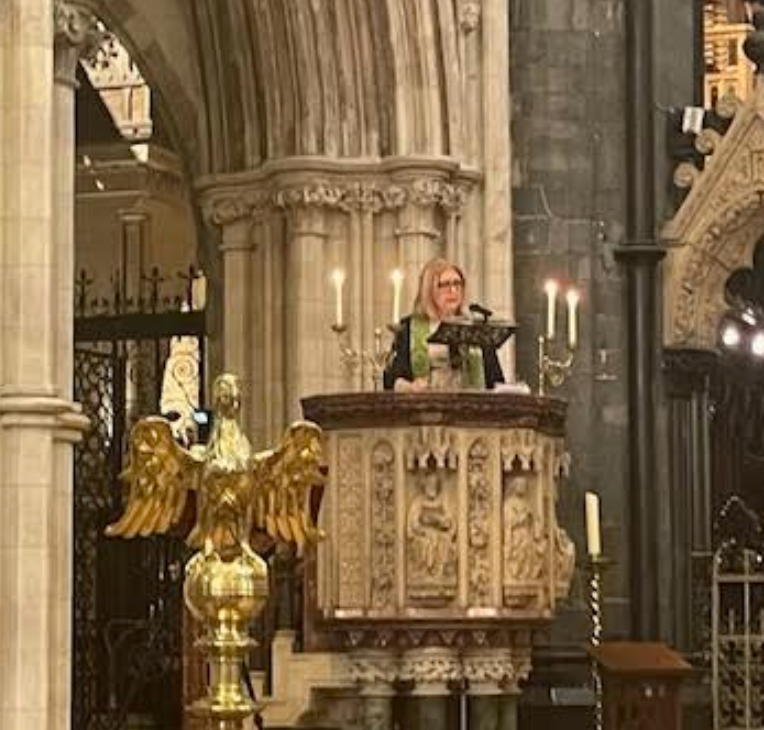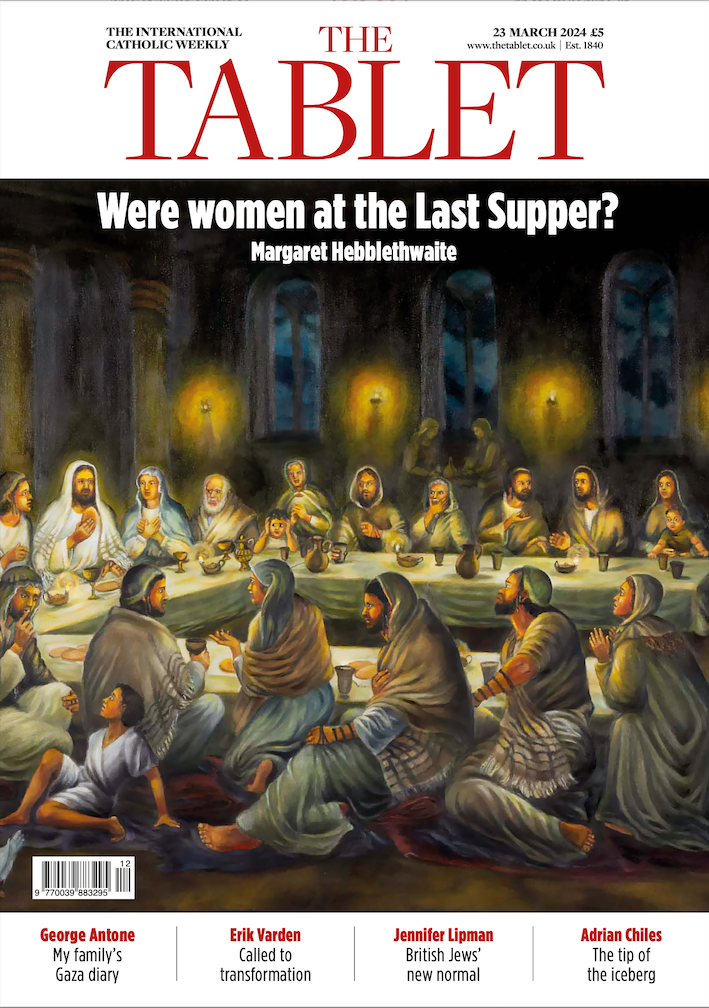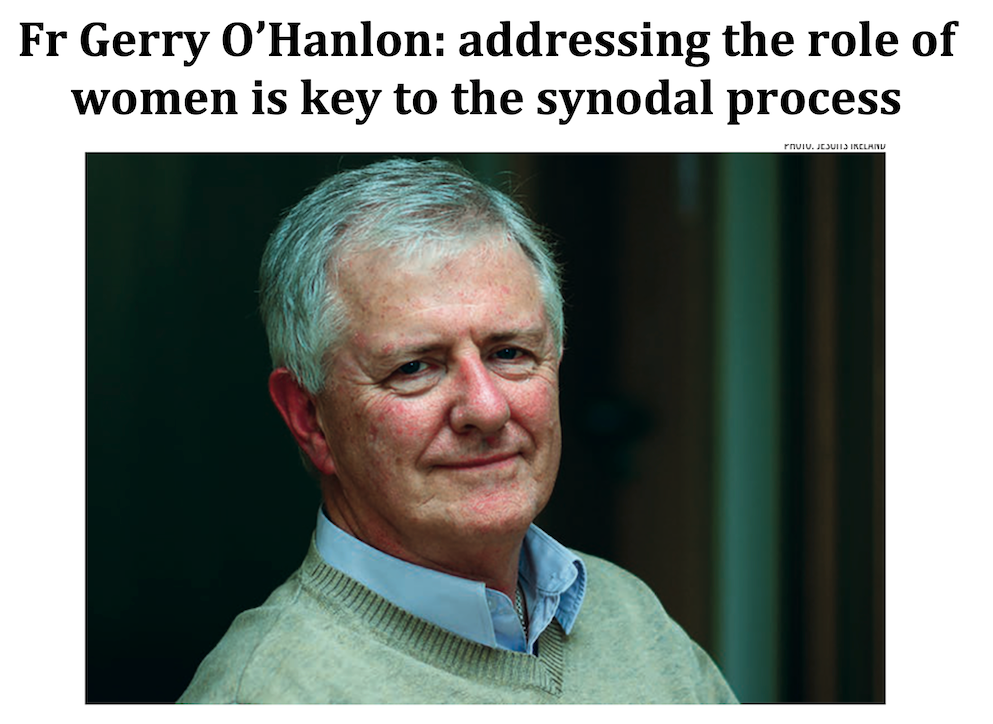EPISCOPAL APOLOGIES
Joe Mulvaney • 31 January 2021
This is a subtitle for your new post
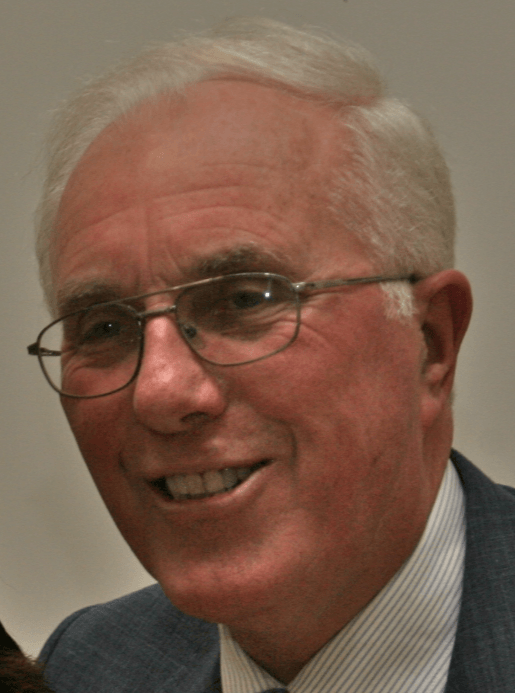
The Irish Catholic (January 21st, 2021) carried texts of numerous apologies from Bishops and Sisters in response to the Report on Mother and Baby Homes. There were further apologies on the website of the Irish Bishops Conference as well as a more recent apology by Archbishop Eamon Martin relating to Northern Ireland. Clearly, something had gone drastically wrong within the Catholic Church and other churches in that era of the Reports. The stories of the women and children are harrowing and heart-breaking. The levels of cruelty, misogyny and patriarchal abuse are shocking especially when juxtaposed with the sham pieties and prevailing Marian devotions of that time. The Report appears unsatisfactory to persons involved. It is very convenient for the powers that were in control to diffuse general blame on to society, fathers, etc.
It is right and just that the Primate and others issued apologies. However, action is needed from the hierarchy and the State. Active listening to their needs and generous redress is the least due to survivors. All of us Catholics need clarity as to the overall dysfunction, how we are all to blame and the exact reforms and new narrative needed in response to decades of awful Reports and a growing crisis in the Catholic Church. Instead of the traditional policy of doubling down and refusing to own up to systemic wrongdoing, it would be a blessing in those dark times if our servant leaders stepped forward and involved us all in massive reform.
There were lots of pious words expressed in the apologies. However, there was no admission of the religious roots and patriarchal misogyny behind the abuse of women. There was no confession of the powerful influence and unjust control wielded by the Irish Hierarchy over faithful people in the early decades of the Republic. We await answers to the following questions. Who directed the religious brainwashing of Catholic people, society, doctors, gardai, teachers, civil servants, and politicians? Who denounced women from the altars? Who controlled aspects of education, healthcare, and social services within a shadow State? Who proclaimed Hell for the mortal sin of a sexual thought? What twisted ethos influenced some dedicated and obedient nuns to act without compassion in a system controlled by patriarchs? How are we Catholics now guilty as enablers when we had no vote within the clerical control group? Will future reports find us practising Catholics guilty of collusion with Catholic Catechism teachings that are homophobic and Canon Laws which continue to be unjust to women? Is walking away the best option when the Roman Curia appears totally irreformable?
Archbishop Eamon Martin apologised for the Church’s role. The word “Church” has different meanings. Did he mean the hierarchy as in pre-Vatican II usage or did he mean the People of God? Excellent foster parents, some families and many Legion of Mary volunteers were among the People of God who did great good rather than bad in those impoverished times. The People of God for much of McQuaid’s Ireland were programmed to pray, pay, obey, and never question in a patriarchal and misogynistic institution. Is that institution reformed and totally changed today? It is profoundly depressing for lay Catholics to observe that all roles are open to women in God’s wonderful world but denied to them by patriarchs in the Curia and hierarchy.
Bishop Paul Dempsey stated that the Church had a distorted view of sexuality. I presume he meant the hierarchy. They are loyal to the distorted view of sexuality and misogynistic traditions of the Ancient Fathers. Those men promoted the false teaching that Eve was the ruination of Adam and that shameful nudity was the Original Sexual Sin in Eden. Some taught that woman was of the devil and inferior to men. Gradually, they decreed that marriage intercourse was incompatible with celebration of the Mass. The abuse and injustice of enforced celibacy was then imposed on priests. Even married women had to be “churched”! Jesus wept.
Bishop Dempsey also stated that when the Church (?) fails to focus on Christ, all sorts of distorted practises emerge. That is nice holy talk about Christ, but the truth is that distortions arise when male eunuchs alone decide the narrative. Wholesome governance, leadership, ethos, teaching, and ministry in any Christian Church can only arise from healthy women and men with an equal voice and vote. There is a good chance that the common sense of baptized people will be the loving word of God and will not be warped, cruel or authoritarian.
In the wake of all the Reports and negative events in the Catholic Church since the tragedy of Humanae Vitae in 1968, there was no hopeful signal in the apologies or commentary of any plans by the bishops in regard to the major reforms that are long overdue. A central issue in the recent Report and a central issue for Catholics today is respect and justice for women. Unfortunately, the Roman Curia and the hierarchy do not appear to get that. In true Trumpian fashion, they double down on their clerical policy of apartheid for women under the “sweet soap” of complementarity. Polls have shown over many decades that Irish Catholics do not agree with the hierarchy in their refusal to grant equality and justice to women in the leadership, governance, teaching office and ministry of the Catholic Church.
We pray that the bishops will listen to lay people and good pastoral priests in their persistent cries for reform and a wholesome new narrative. There is much potential for good growth of the Kingdom of God when there is substantial reform of the largest Christian Church, agreed reunion of all churches and a New Christian Narrative for the 21st century.
Joe Mulvaney
Dundrum, Dublin 16
January 30th, 2021
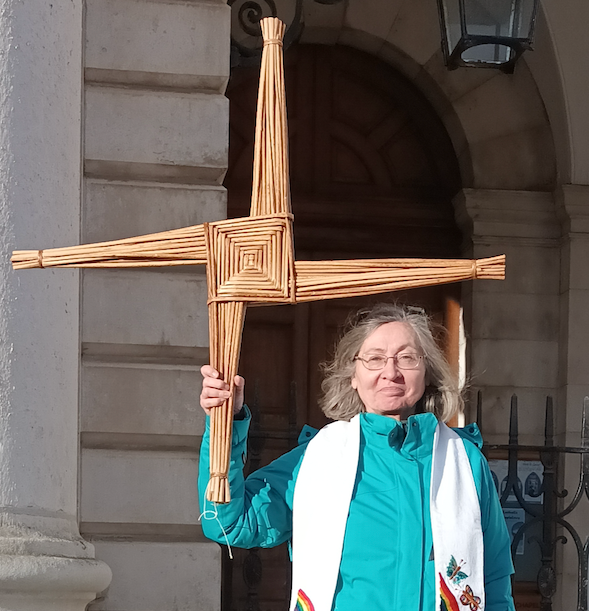
A reflection by Soline Humbert for the Women’s Ordination Conference Retreat “Hidden Springs, Holy Radiance” 9 February 2025 [ see recording on YouTube https://www.youtube.com/watch?v=szP5h1kzEsU ] We have been gathering over the past three days in the presence of Brigid of Kildare, and I am sure she has brought gifts to each one, for my experience is that she is attentive to our needs and very generous with her help. At this stage I just want to share some of my own life journey with Brigid. I first encountered her in 1969 when I came from France to Ireland as a child on holidays to learn English. I went to a small Irish town called Tullow. As it happens it was in Tullow that on the first of February 1807 the order of nuns of St Brigid which had been dissolved at the Reformation, had been refounded by a far-sighted bishop. Symbolically an oak sapling had been brought from Kildare Town, from the church of the oak, to Tullow and planted in the grounds of the Brigidine convent where I took English classes. It was by then a majestic oak tree. It still stands to this day. Coincidentally and somewhat ironically, 1969 was also the year that Pope Paul the 6th removed St Brigid, along with 193 other saints, from the Universal Roman Calendar of saints. The reason being that there wasn’t enough evidence for her existence! That despite the fact she was the most mentioned Irish person in the writings of several centuries after her death... What was true was that her flame had been somehow extinguished, and her importance diminished in a deeply clericalised and patriarchal church as Ireland was at the time. She was in the shadow of St Patrick and very much the secondary patron Saint, reflecting the secondary position of women in general. But change was slowly happening. Having discovered in myself a vocation to the priesthood I eventually co- founded a group for women’s ordination and launched a petition to open all ministries to women in February 1993. At the very same time, which I consider providential, the flame of St Brigid was rekindled by the Brigidine sisters in Kildare Town. Women were stirring after a very long wintertime in the church and in society and becoming more fiery. Brigid with her torch was blazing a way for equality. It is then, and only then, that I came across the story of her ordination as a bishop and I remember my astonishment for I had never read anything like that before, or since, for that matter. Of course, while this fact was mentioned in many of the lives of Brigid going back to the first millennium it had been quietly left out of the pious descriptions of her life which were fed to the people. The way the story is recounted makes it clear that her ordination was considered to be very much the doing of the Holy Spirit. Objections about her gender were voiced but powerless to negate what God had done. It reminds me very much of the passage in the Acts of the Apostles when St Peter is amazed to discover that the Holy Spirit has descended on Cornelius, a gentile, and which leads him to conclude that “God has no favourites”. Brigid’s episcopal ordination at the hands of a bishop overcome by the Spirit is also a powerful affirmation that when it comes to ordination God has no favourite gender. Her ordination’s divine origin shows that Brigid was a bishop because God ordained it, and her. A very subversive truth our Church has yet to learn... As we campaigned for women’s ordination we made sure that this episode from Brigid’s life was brought into the open, again and again, despite clerical efforts to dismiss this dangerous historical memory as pure legend and keep it buried. Interestingly when the Anglican Church of Ireland, (Episcopalian) ordained their first woman bishop in 2013 it was to the diocese of Meath and Kildare! A very symbolic act. I have often gone to St Brigid’s Well in Kildare, a little oasis of peace, to spend some time with Brigid and re-source myself by the gently flowing water. After the First Women’s Ordination Worldwide Dublin international Conference in 2001 I went there again on the anniversary of my baptism and I hung my purple stole on a tree overlooking the well. I had worn that stole for many years as a sign of waiting. From now on I would wear stoles of other colours. And a few years ago, I found myself back in Tullow, as a guest speaker at the invitation of the Brigidine sisters for an international celebration. It was very moving to be able to speak of my calling to priesthood in the place where the order of St Brigid had been revived and where I had first come as a child half a century beforehand! That day I sensed very much the presence of Brigid the bishop and I was filled with joy and gratitude. In some ways we can say St Brigid has risen up and is leading the way for women to rise up. Although a woman in what was very much a man’s world and a man’s church, Brigid exudes a remarkable confidence in her being, in her words and in her actions. No doubt that confidence was rooted in a deeply contemplative life nurtured by prayer. “From the moment I first knew God, I have never let him out of my mind, and I never shall”. She embodies the authority which stems from being filled by the Spirit and a leadership at the service of peace, justice, hospitality to the strangers, charity to the poor and marginalised, reconciliation, healing and harmony with creation and care of the earth. The two Scripture readings we have just heard are very fitting for she was renowned for her practical care and generosity to those in need or suffering. Like Christ, she went around doing good. I must not be the only one who saw and heard in Episcopalian bishop Mariann Budde’s recent words the spirit of St Brigid as she used her God- given authority to plead for mercy for the people in vulnerable situations in the face of unbounded cruelty. Brigid is a bold, dynamic presence. She is said to be a woman of the threshold, of liminal places, and she is a sure guide for our times when we also are in transition on the threshold of a new church and a new world too. She calls to us to step boldly forward with our torches burning brightly, bringing the light and warmth of God’s Love to a world gone cold in the grip of darkness and despair. Her life reminds us that with “God nothing is impossible” and to expect miracles. I shall end on a light- hearted note: I went on pilgrimage to St Brigid’s Well and Solas Bhride in Kildare last Tuesday to prepare for this retreat. On the way back from the well and driving through the wide expanse of the Curragh where thousands of sheep graze freely I started seeing a multitude of rainbows. It reminded me of one of the many whimsical stories about Brigid: Caught in a rainstorm, she hangs her mantle on a sunbeam to dry. Dripping from its edges, colourful rainbows form in the water droplets, and her mantle is ‘bright’ with colour. Lady, from winter’s dark, Star of Imbolc, rise! Dance across our threshold: Scattering warm laughter Seeds of hospitality, Tolerance, forgiveness! Return again to the folk: You the Spring we yearn for! (Tom Hamill)

Women are a problem for the Catholic Church, an institution with ingrained misogyny - Soline Humbert
Papal plámás is no substitute for an end to discrimination against women






